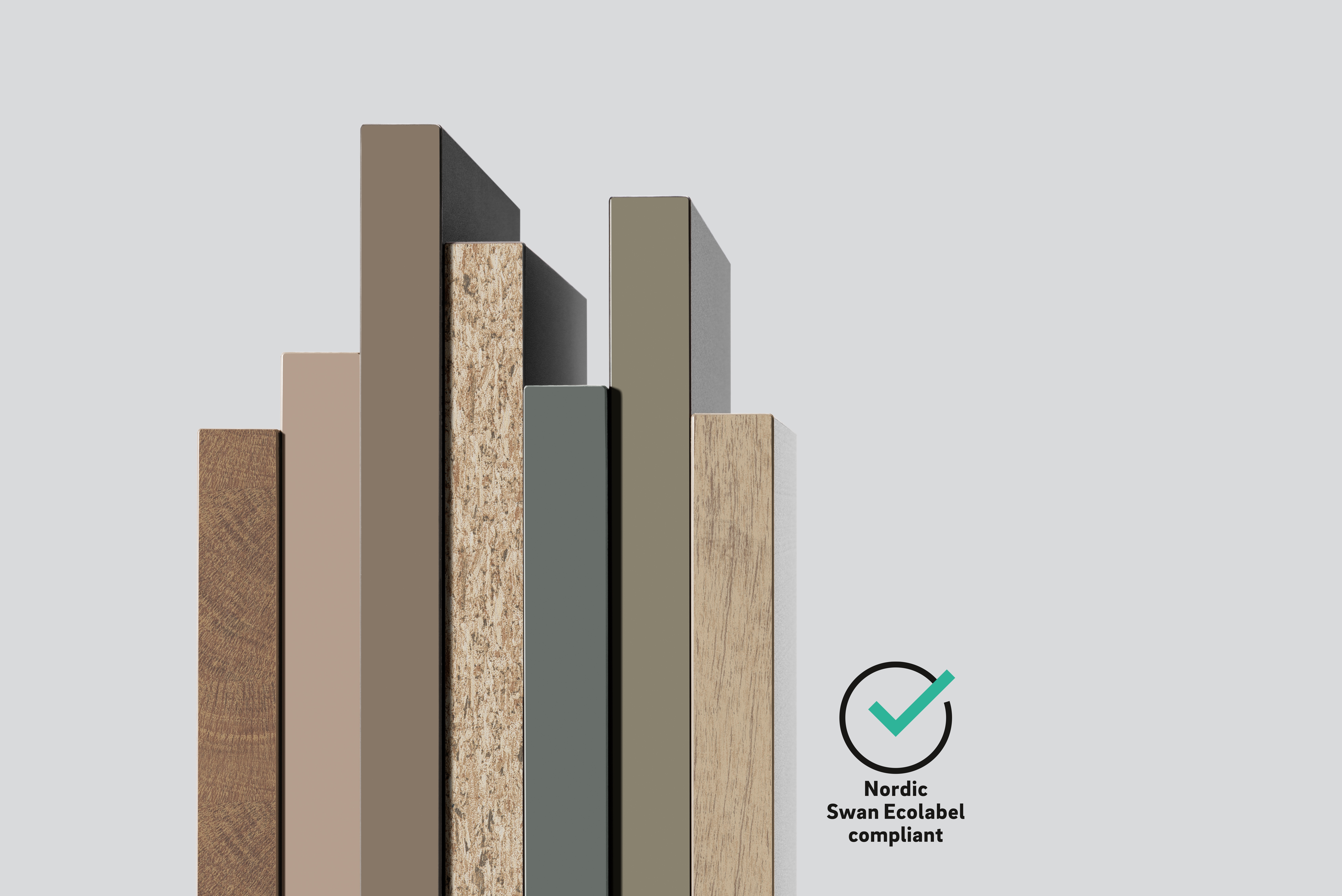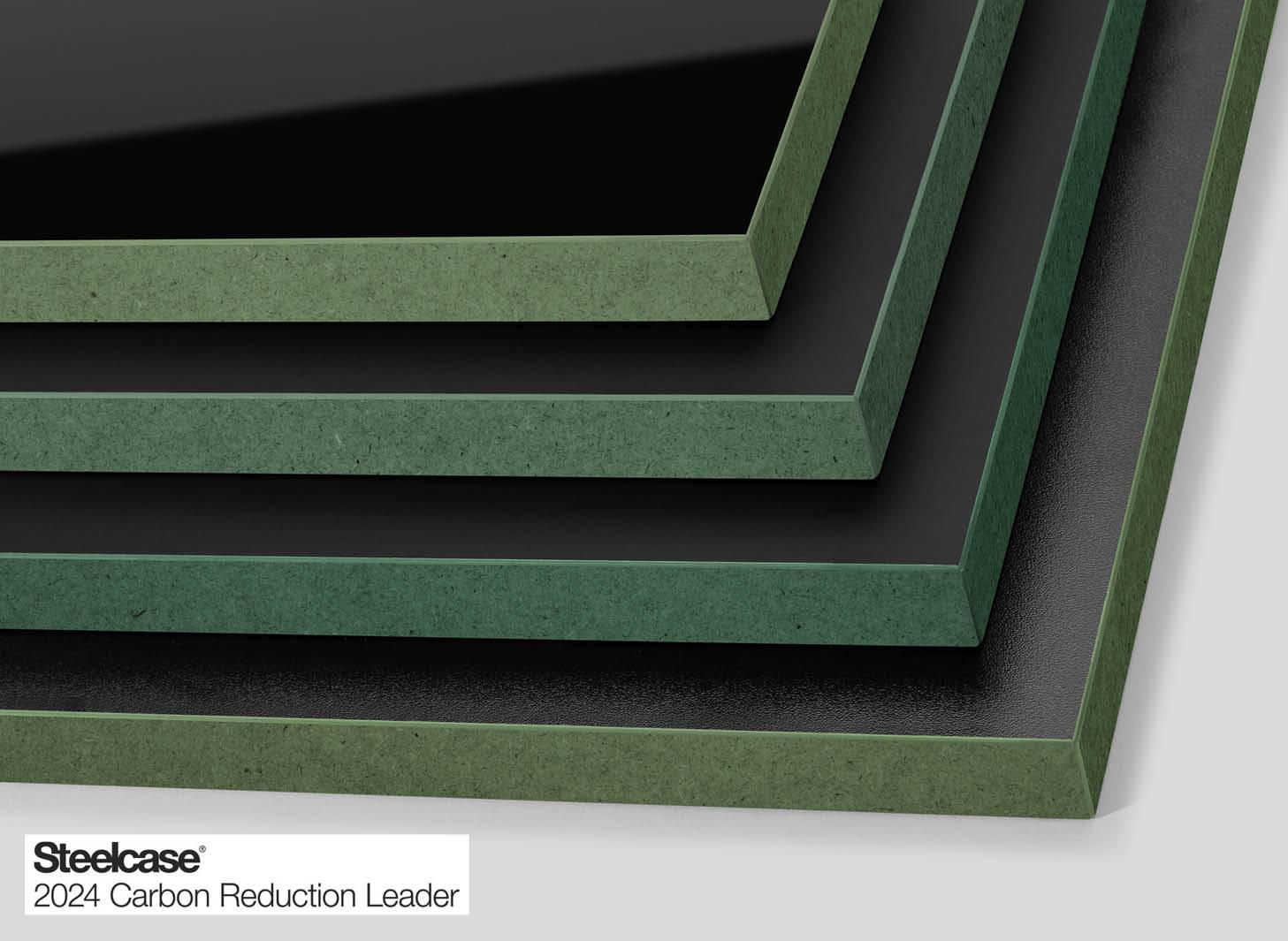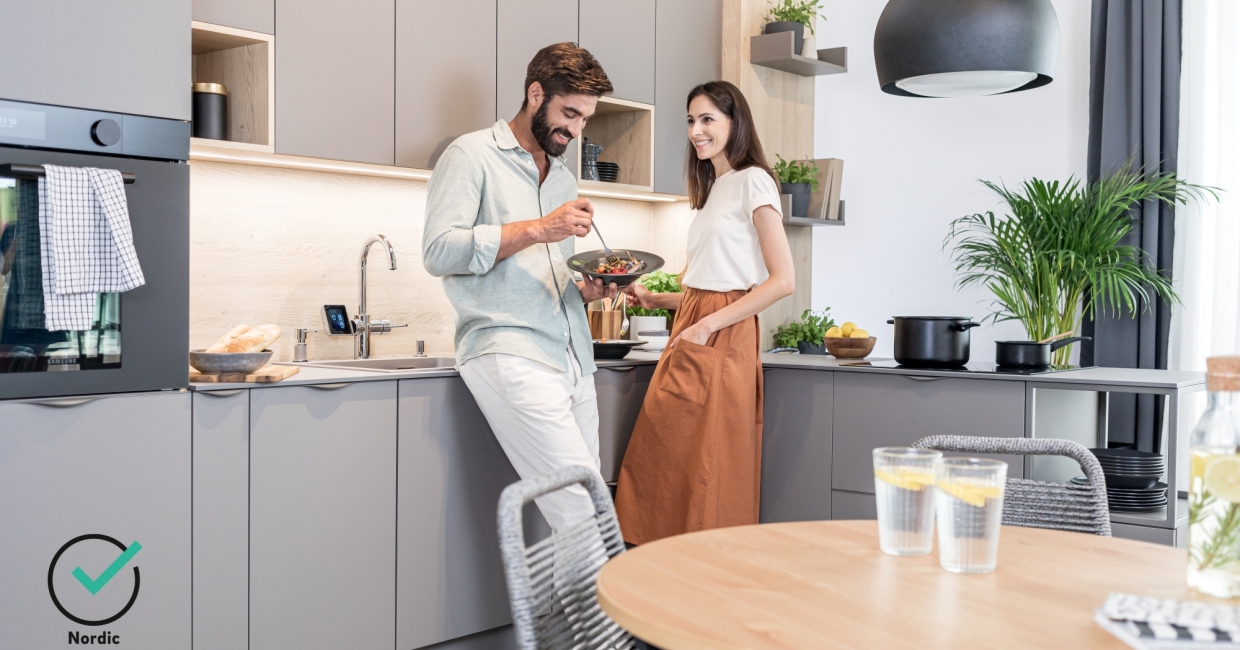Faced with growing climate challenges and the depletion of natural resources, REHAU is presenting a comprehensive sustainability strategy for its Interior Solutions division. The company’s latest publication, the Green Factbook, highlights concrete actions, results and ambitious goals that align with the European Green Deal.
From a linear to a circular economy
The traditional linear economy – based on the principle of “take – make – waste” – results in the irreversible loss of valuable resources and contributes to major environmental issues such as mountains of waste, polluted seas and degraded ecosystems. REHAU stresses the urgent need to shift towards a circular economy (CE), in which materials are kept in circulation for as long as possible.
In this model, products are dismantled at the end of their life cycle, valuable raw materials are reused, and only the non-recyclable fraction becomes waste. This approach reduces carbon emissions, conserves finite resources and fosters sustainability.
The long-term objectives of CE include building a low-carbon economy based on renewable energy, preventing waste and pollution, recycling products and materials, restoring ecosystems, creating new jobs and business models (such as sharing concepts and repair cafés) and ensuring supply security.
Political support as a driver of change
According to REHAU, political frameworks play a decisive role wherever market forces alone are insufficient to drive sustainability. The European Green Deal is highlighted as a strong example of how regulation can accelerate change. Its objectives include:
- Enhancing product durability, reusability and repairability,
- Reducing hazardous chemicals in consumer goods,
- Increasing energy and resource efficiency,
- Introducing mandatory recycled content in products,
- Strengthening the secondary raw materials market and the recycling sector,
- Preventing greenwashing,
- Promoting business models and technologies that reduce CO₂ emissions.
The overarching target is for the EU to achieve climate neutrality by 2050, with a 50% reduction in CO₂ emissions by 2030, compared to 1990 levels.
Sustainability across the entire value chain
REHAU, as a family-owned company, has embedded sustainability at every stage of its value chain. From responsible sourcing of raw materials to efficient production processes, product design and packaging, environmental awareness is an integral part of the company’s strategy.
Key priorities include increasing the share of recycled and renewable raw materials, minimising packaging, promoting reuse, and fostering a respectful working environment. Equally important is ensuring compliance with emerging supply chain due diligence regulations, which will strengthen social responsibility across all operations.

Results and targets in numbers
REHAU’s commitment is already delivering measurable results. In 2023, the company reported:
- 20% share of recycled materials in total production volume,
- 65% reduction in CO₂ emissions compared with 2018,
- 65% reduction in primary energy consumption compared with 2019,
- 7% reduction in water usage since 2019,
- 20% of production plants powered by renewable energy (all European edgeband plants already run on climate-neutral electricity),
- 66% of packaging made from sustainable materials.
Looking forward, REHAU is pursuing further increases in the proportion of recycled and alternative raw materials, the elimination of harmful substances, and achieving climate neutrality across the entire supply chain (Scopes 1–3) by 2050.
Innovative products for a sustainable future
In the Furniture Solutions division, REHAU has been working for years on more sustainable product solutions. A flagship initiative is the RAUKANTEX eco.protect family, which includes two innovative lines. RAUKANTEX eco features polypropylene edgebands containing up to 50% post-industrial recyclates in the base material. The RAUKANTEX evo edgeband, meanwhile, is based on renewable raw materials, the use of which creates no additional demand for crude oil.
These products retain the same design quality and processability as existing ranges and comply with the Nordic Swan Ecolabel.
These innovations allow manufacturers to create furniture that is both aesthetically appealing and environmentally responsible.
ReTurn – closing the loop on edgebands
A crucial step towards circularity is REHAU’s ReTurn edgeband recycling concept. The programme enables customers to return unused PP and ABS edgeband materials, which are collected, sorted and re-granulated by REHAU. The recycled material is then reintroduced into new production cycles.
This initiative helps to avoid thermal disposal, cuts waste and reduces reliance on virgin raw materials. Pilot projects have already demonstrated the feasibility of reintegrating production residues into the circular system, supporting resource conservation and lower CO₂ emissions.
Edgebands eco-fino – design meets sustainability
Another example of REHAU’s sustainable product development is RAUVISIO eco-fino, a surface material made with up to 97% recycled content. The rPET film contains up to 80% recycled material, while the carrier board consists entirely of recycled chipboard.
RAUVISIO eco-fino combines a timeless matt look with improved environmental performance, including lower formaldehyde emissions than natural wood. It is certified according to CARB2 and E05 standards, making it particularly attractive for environmentally conscious furniture manufacturers.
Tambour door and wall seal systems
Within the tambour door and wall seal systems, REHAU has implemented resource-saving processes, such as using up to 100% recycled ABS and 50% recycled PP.
Production in Europe already runs on renewable electricity, and innovations such as RAUKANTEX pro reduce energy use by approximately 25% during manufacturing. The company also commits to further material savings, weight reduction and lower transport emissions.
All products comply with RoHS and REACh regulations and are free from lead, phthalates, chlorine compounds and halogenated flame retardants.
Transparent environmental performance
To provide customers with reliable information, REHAU publishes Environmental Product Declarations (EPDs) for edgebands PP, ABS, eco and evo products. These scientifically based documents, verified by independent bodies, cover the entire product life cycle from raw material extraction to disposal, and remain valid for five years.
Such transparency allows customers to make informed choices and supports compliance with evolving European environmental legislation.
Social responsibility
Beyond environmental impact, REHAU actively promotes fair working conditions, rejects low-wage practices and child labour, and supports the inclusion of people with disabilities, for example, through cooperation with social workshops. The company also guarantees attractive remuneration across all locations.
A clear target has been set: increase the share of women in management positions from 10% to over 15% by 2025, reinforcing diversity and reducing inequalities.
Towards a climate-neutral future
REHAU’s sustainability journey is closely aligned with the 17 United Nations Sustainable Development Goals. As a member of the global initiative 50 Sustainability & Climate Leaders, the company aims to lead by example in the transition towards a sustainable and circular economy.
By investing in recycling, renewable energy, and innovative product design, REHAU is making measurable progress towards its overarching ambition: achieving climate neutrality across its entire value chain by 2050.










